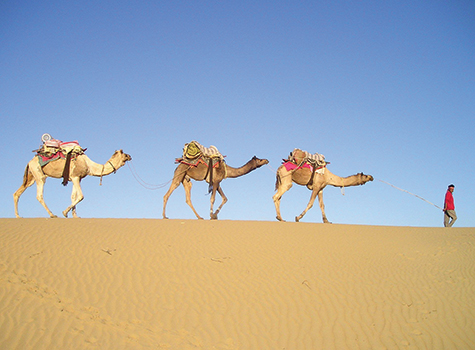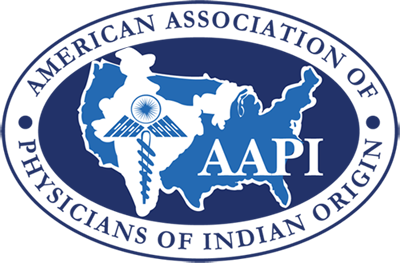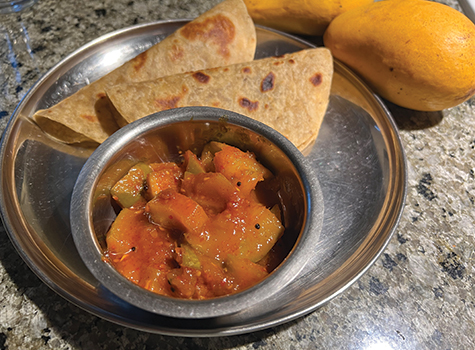By Jennifer Allen

I should probably first preface this essay as a person who is not in any way of South Asian or East Asian descent. I can only offer a point of view about this topic as seen through the eyes of someone who has studied various cultures to better understand them. Yet, I cannot say that I have experienced these particular faux pas to their fullest capacity, so this will be my perspective of the topic as a (mostly) Anglo-ancestral woman.
Moving on…
While the general idea of Orientalism has been around for centuries, the actual term was coined by Edward Said in his 1978 book of the same name. It’s often misinterpreted as a work that is about Asian culture (more specifically Arab-Islamic culture), but instead aims to further explain the harm that such a concept can have on the very peoples being described. Since the book’s publication, the very thought of being labeled an Orientalist could be seen as damaging as any racist, sexist, homophobic, or transphobic.
To further explain… Said’s book is work of intellectual history based on research into an enormous range of literary and scholarly texts. In the author’s own words, Orientalism is “a style of thought based upon an ontological and epistemological distinction between ‘the Orient‘ and (most of the time) ‘the Occident.’” In laymen’s terms, it is the perception of Asian cultures as seen through the rose-colored glasses of outsiders… particularly Europeans of the time.
These interpretations were not always negative. In fact, classical Orientalism drew upon much of the beauty observed in South and East Asian art. The problem stems from the fact that became part of a long-winded system of “power-knowledge;” labeling a different culture in such a way as to better secure the stability and supremacy of Western culture. A discourse of the powerful about the powerless that is at the same time an expression of narcissism, according to Said.
Unfortunately, Orientalism is still with us as a part of the West’s social and political unconsciousness. American culture, in particular, has adopted a somewhat skewed version of it thanks to the aftermath of the Korean War, the Vietnam War, Desert Storm and September 11th. We are shown various instances of stereotypical Asian roles in film and TV (the convenient store owner, IT worker, doctor, or young math wiz to name just a few).
And yet with our ever-growing access to various movies, serials, and other media from all over the world some of us have perhaps over-corrected these categorizations to appear more ‘woke’. Orientalism in the modern age is imagined through an attempt to acknowledge Asian culture and then “adapt” it to a more Western mindset. Orientalism is the popularity of yoga studios and bindis at Coachella. It’s Starbucks taking a popular South Asian drink and rebranding it as a “golden turmeric latte.” It’s Carrie Bradshaw trying to buy a sari to celebrate Diwali with her Indian American friend (and later wearing a lehenga instead). It’s every “empowering” Netflix show that depicts an Asian woman standing up to a mediocre white man. It’s the plethora of egregious ‘white savior’ films in Western cinema….
I think you get the general picture.
At the same time, the Orientalism of today feeds off the fear from Muslim and East Asian Communist societies as a heavily publicized conspiracy theory. This is no longer spread by way of bookshops and libraries but Twitter, Facebook, YouTube, and the Dark Web. It’s not just in America either. While the anti-Muslim agenda has been quite prevalent in the US for decades now, you also hear about it in France, Spain, Britain, Scandinavia, Hungary, Italy, Germany; basically, any country where the origins of “power-knowledge” eventually took hold.
This more recent mindset has further shaped our domestic politics as the Trump administration consistently reminded us that we are besieged white men threatened by these barbarians who have burst through the gates to take their jobs, security, and overall livelihood. He wants to ‘Make America Great Again’ while simultaneously ignoring the fact that ALL Americans are either immigrants themselves or descended from them and were treated the exact same way once upon a time.
The overall takeaway is that Orientalism is not just a trendy buzzword to exploit or avoid, but a concept born out of bloody histories of colonialism, capitalism, and domination. The contemporary landscape is bleak, and we cannot simply ignore its impact. Edward Said’s book and its theories are just as important today as they were when they were published. It saturates our very mindset as one of many parts of Western culture. Because Orientalism is a product of an Anglo-centric society, resisting it could be seen as a way of losing cultural identity. It looks like liberation for women, queer and trans people, Black people, Indigenous people, fat people, and Dalit people.
As Said himself wrote, “Stories are at the heart of what explorers and novelists say about strange regions of the world; they also become the method colonized people use to assert their own identity and the existence of their own history.”
Maybe we all need to better understand that every culture is different and accept that one person’s beliefs, culture, and lifestyle will not be the same as another’s. While I won’t say that every cultural practice is ultimately beneficial to its practitioners, we would do better to educate ourselves to why these ideologies are in place and find a way to compromise.
It’s finally time for those depicted through the lens of Orientalism to break away and have their own voice. I, for one, am more than willing to listen.
Jennifer Allen works at Saathee and is also a Podcaster, Blogger, Photographer, Graphic Artist, Martial Arts Practitioner, Gamer, and all around Pop Culture Geek. Reach her at saathee@saathee.com



